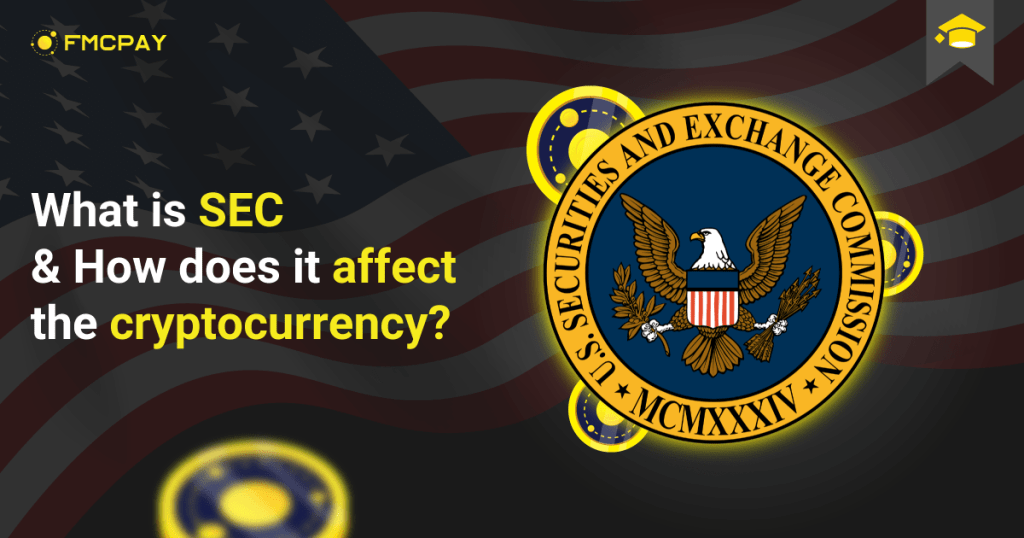The SEC is a regulatory organization in the United States that is in charge of safeguarding investors and guaranteeing fair and transparent markets. The SEC has gotten more active in regulating the cryptocurrency industry as it has grown. Its actions and suggestions have an influence on the growth and regulation of the crypto market, including ICOs, establishing whether a cryptocurrency is a security, and regulating cryptocurrency exchanges.
What is the SEC?
The SEC is a shortened form for the United States Securities and Exchange Commission, which is a federal organization in charge of regulating securities markets and safeguarding investors in the United States.
In general, securities traded in interstate commerce, via mail, or over the Internet must be registered with the SEC before they may be sold to investors. To conduct business, financial services businesses such as broker-dealers, consulting firms, and asset managers, as well as their professional representatives, must register with the SEC. For instance, they would be in charge of authorizing any official bitcoin exchange.
How the Securities and Exchange Commission (SEC) works
The major mission of the SEC is to supervise businesses and persons involved in the securities markets, such as stock exchanges, brokerage firms, dealers, investment advisers, and investment funds. The SEC encourages transparency and dissemination of market-related information, fair dealing, and fraud prevention through established securities laws and regulations. It makes registration statements, periodic financial reports, and other securities filings available to investors via its electronic data-gathering, analysis, and retrieval database, known as EDGAR.
The SEC is organized into five divisions and has 23 offices. Its objectives are to interpret and enforce securities laws, make new regulations, oversee securities institutions, and coordinate regulation across multiple levels of government. The five divisions and their distinct functions are:
- Division of Corporate Finance: Ensures that important information (information relevant to a company’s financial prospects or stock price) is supplied to investors so that they may make educated investment decisions.
- Division of Enforcement: In responsible of implementing SEC regulations through investigations, civil actions, and administrative processes.
- Division of Investment Management: Regulates investment businesses, variable insurance products, and federally registered investment advisors.
- Division of Economic and Risk Analysis: Integrates economics and data analytics with the primary purpose of the SEC.
- Division of Trading and Markets: Establishes and maintains standards for fair, orderly, and efficient markets.
The SEC may only file civil lawsuits in federal court or before an administrative judge. Criminal matters are handled by law enforcement agencies under the Department of Justice; nevertheless, the SEC frequently collaborates with such agencies to provide evidence and aid in court procedures.
How SEC Regs will change Cryptocurrency Markets
The Securities and Exchange Commission (SEC) regulates the cryptocurrency industry in the United States. The SEC has a substantial effect on the growth and regulation of the crypto market through its enforcement of securities laws, regulatory advice, assessment of whether a cryptocurrency is a security, and regulation of cryptocurrency exchanges.
Investors and the larger economy eventually gain from the SEC’s actions and guidelines because they make the regulatory environment for market participants more clear and maintain fair and transparent markets. The agency’s engagement in the cryptocurrency industry is crucial given the possible dangers and uncertainties related to cutting-edge, developing technology.
Conclusions
Ultimately, the SEC’s actions and guidelines have a substantial influence on the growth and regulation of the crypto market in the United States, and it is an essential regulator to follow for anybody interested in the crypto business. To remain compliant and steer clear of any legal or regulatory difficulties, investors and analysts must keep up with the SEC’s activities and instructions.

